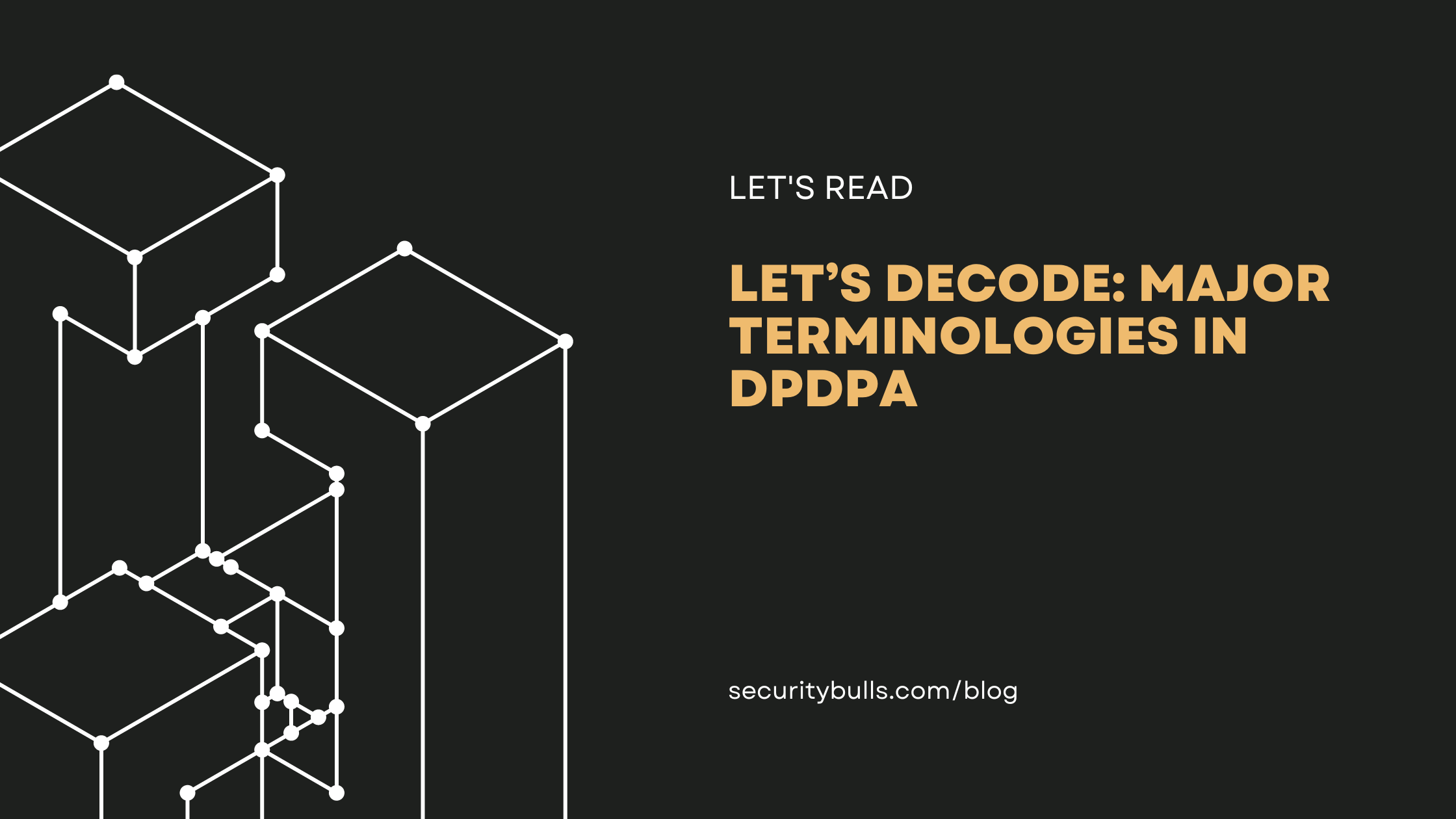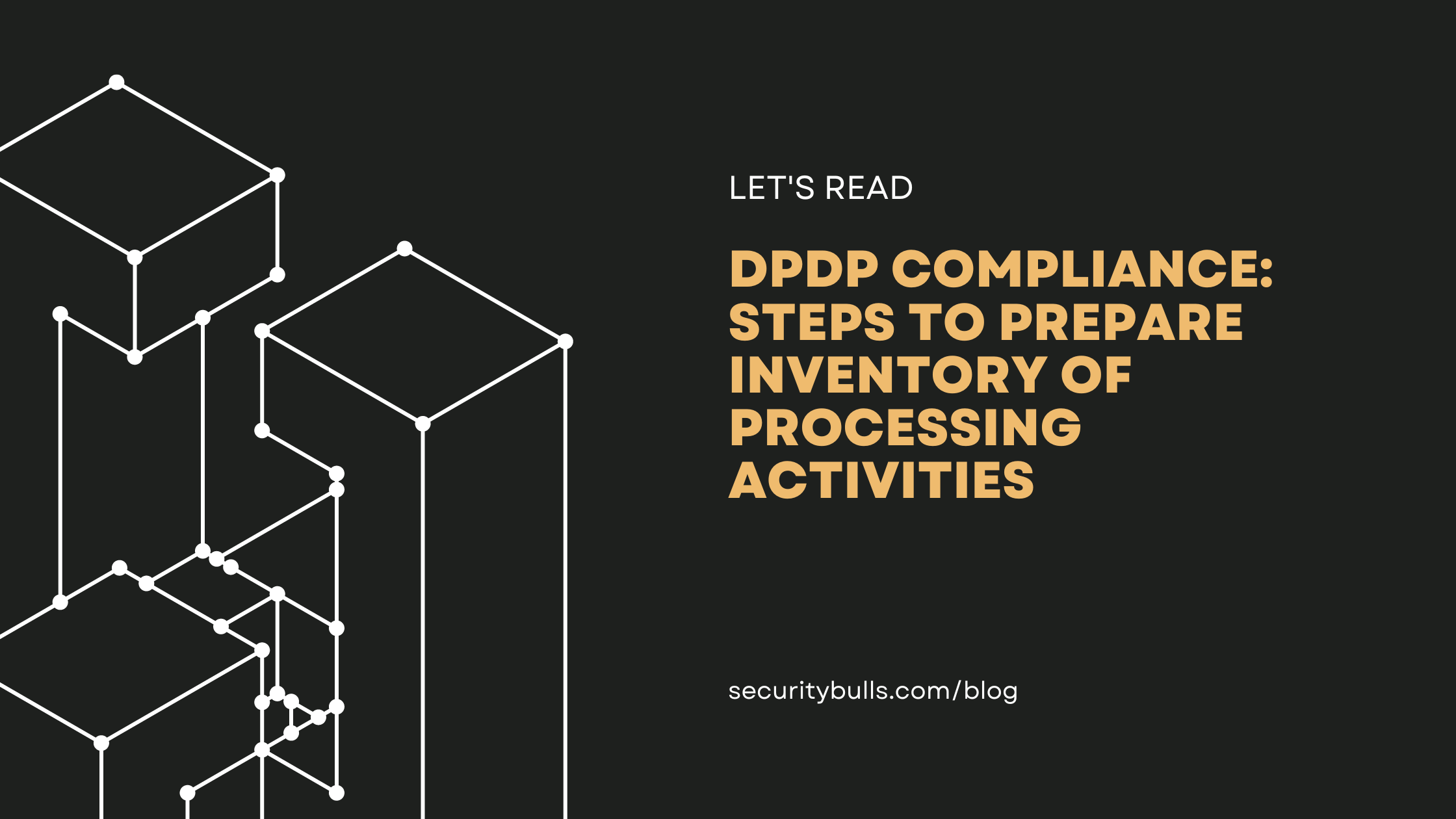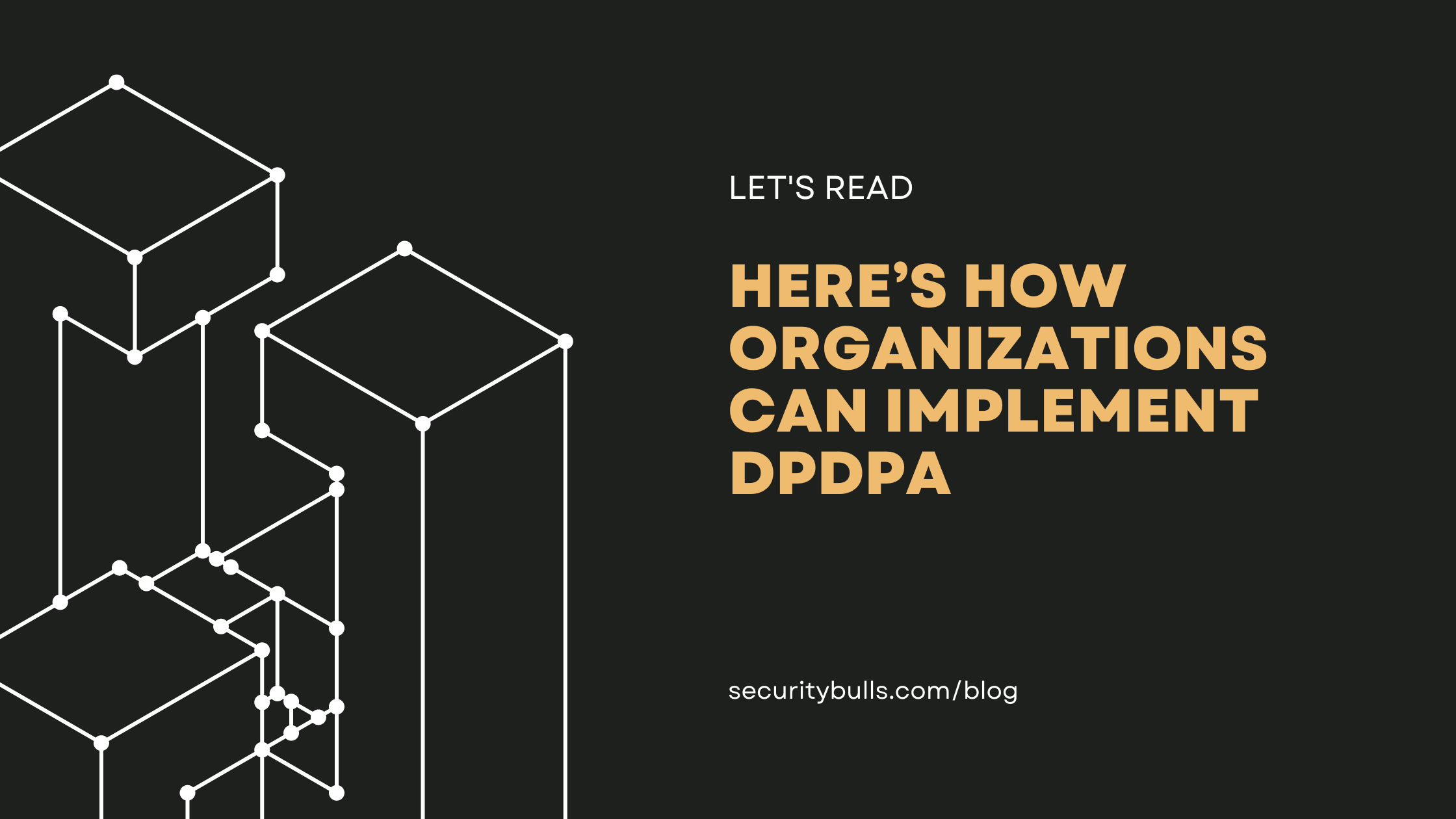In our last blog, we discussed how organizations can introduce themselves to the Digital Personal Data Protection Act (DPDPA). Implementation of any compliance framework including data protection begins with decoding the terms it deals with. Organizations often grapple with the implementation of DPDPA when confusing terms are presented to them. Quite often, a few terms are used interchangeably leaving the project manager with a lot of questions. In this blog, we have attempted to find a way out of such challenges by presenting a granular explanation of the terms in DPDPA.
So, let’s try to understand a few terms concerning DPDPA and major data privacy regulations that will aid us in implementing DPDPA in a detailed manner.
- Data Fiduciary: A data fiduciary is any person or entity who alone or in conjunction with persons or entities determines the purpose of data processing. Let us exemplify it for you! Imagine an organization that specializes in providing marketing services and uses the personal data of clients to run marketing campaigns. This might require them to predict user behaviour for different demographics. This might also require them to make use of some automated tool provided by a third party. In this scenario, the marketing company is the data fiduciary as it determines the purpose of data processing.
- Data Processors: The term data fiduciary and data processor are often used interchangeably but these two are quite different from one another. In our previous example of the marketing company, the third party whose tool is used to predict user behaviour is a data processor. It is NOT a data fiduciary as it does not determine the purpose of processing. That is being done by the marketing company.
- Data Principal: As the term suggests, a data principal is any individual whose personal data is being processed to fulfill a required purpose or render a particular service as requested by the individual. In our example, the customers of the marketing company are the data principals.
- Consent Management: DPDPA explicitly requires data fiduciaries to request consent from data principals before subjecting their data to any kind of processing activity. It also states that consent must be unambiguous and clear. It must also require the data principal to take affirmative action such as ticking a checkbox.
- Consent Manager: A consent manager is a person registered with the data protection board. This individual acts as a single point of contact to enable a data principal to give, manage, review, and withdraw their consent through an accessible platform. A consent manager is accountable to the data principal regarding consent related information.
In conclusion, understanding the key terminologies within the Digital Personal Data Protection Act (DPDPA) is crucial for organizations aiming to navigate the complexities of data privacy regulations. By differentiating between data fiduciaries, data processors, data principals, and understanding the importance of consent management, organizations can lay a solid foundation for DPDPA compliance. As this journey towards data privacy and protection unfolds, remember that you don’t have to tackle these challenges alone. Securitybulls offers specialized DPDPA consultation services, tailored to meet the unique needs of your organization. Whether you’re in fintech or any other industry, our expertise can help streamline your compliance process, mitigate risks, and protect the personal data entrusted to you.





